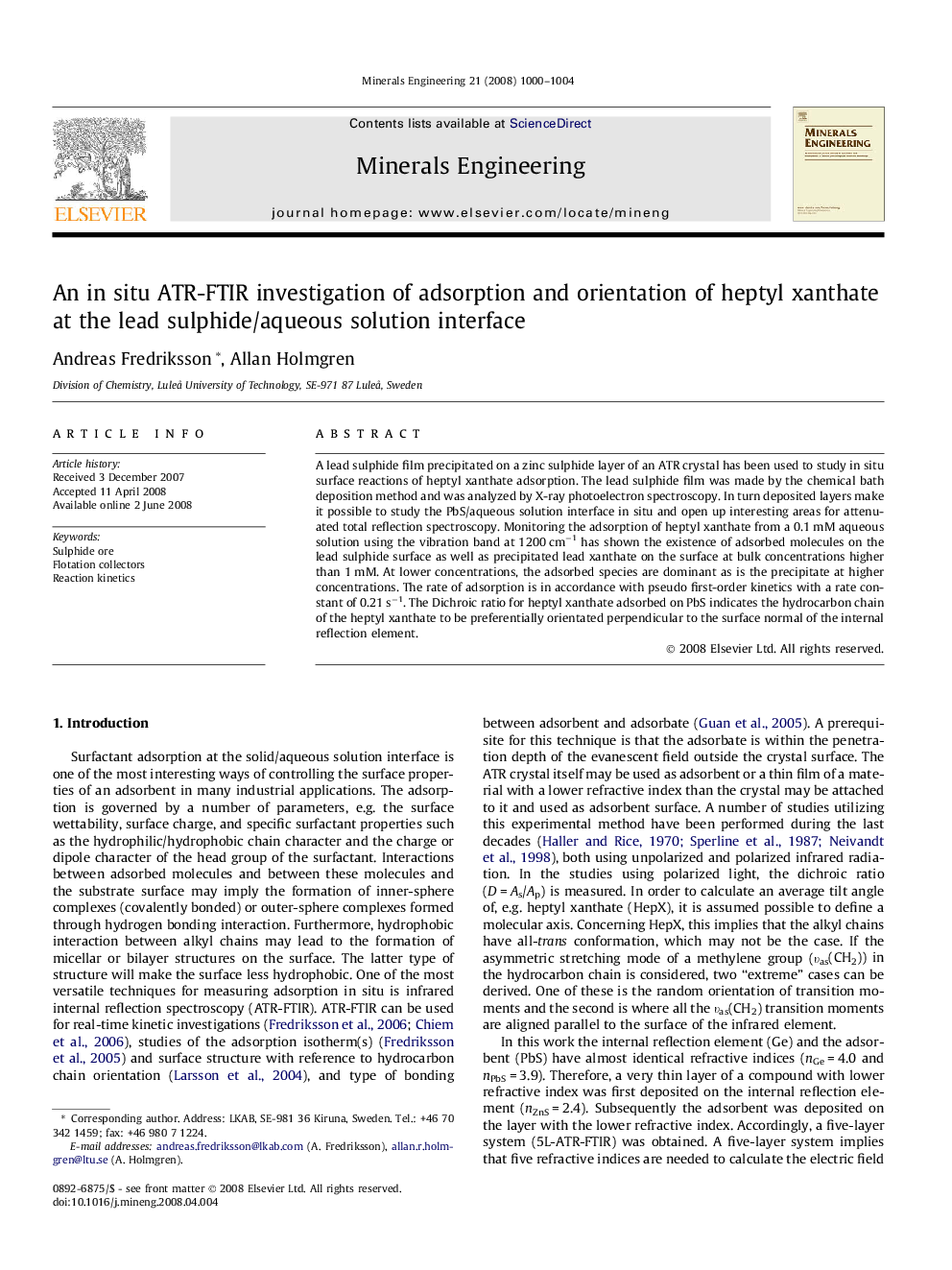| Article ID | Journal | Published Year | Pages | File Type |
|---|---|---|---|---|
| 234623 | Minerals Engineering | 2008 | 5 Pages |
A lead sulphide film precipitated on a zinc sulphide layer of an ATR crystal has been used to study in situ surface reactions of heptyl xanthate adsorption. The lead sulphide film was made by the chemical bath deposition method and was analyzed by X-ray photoelectron spectroscopy. In turn deposited layers make it possible to study the PbS/aqueous solution interface in situ and open up interesting areas for attenuated total reflection spectroscopy. Monitoring the adsorption of heptyl xanthate from a 0.1 mM aqueous solution using the vibration band at 1200 cm−1 has shown the existence of adsorbed molecules on the lead sulphide surface as well as precipitated lead xanthate on the surface at bulk concentrations higher than 1 mM. At lower concentrations, the adsorbed species are dominant as is the precipitate at higher concentrations. The rate of adsorption is in accordance with pseudo first-order kinetics with a rate constant of 0.21 s−1. The Dichroic ratio for heptyl xanthate adsorbed on PbS indicates the hydrocarbon chain of the heptyl xanthate to be preferentially orientated perpendicular to the surface normal of the internal reflection element.
